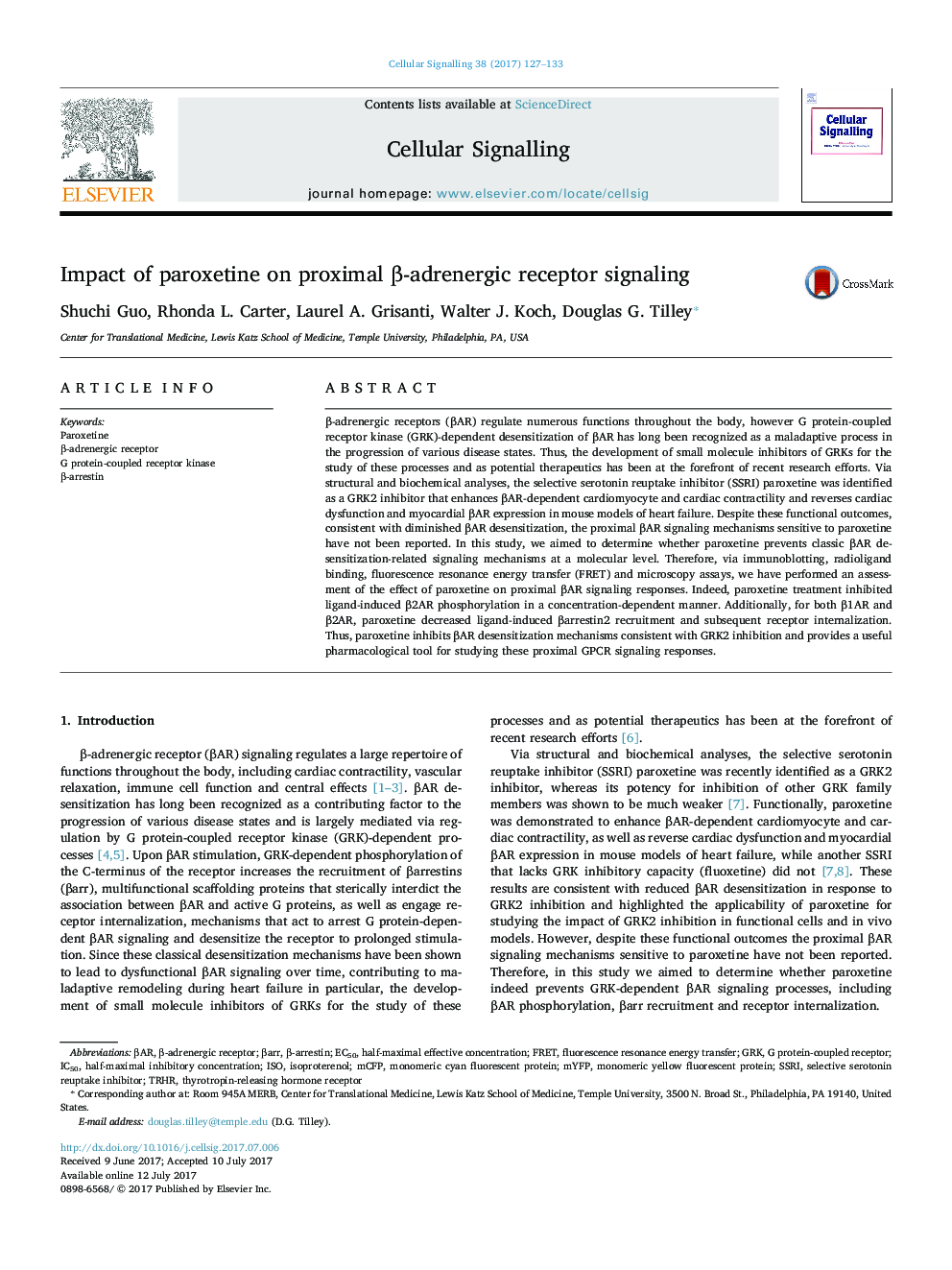| Article ID | Journal | Published Year | Pages | File Type |
|---|---|---|---|---|
| 5509324 | Cellular Signalling | 2017 | 7 Pages |
Abstract
β-adrenergic receptors (βAR) regulate numerous functions throughout the body, however G protein-coupled receptor kinase (GRK)-dependent desensitization of βAR has long been recognized as a maladaptive process in the progression of various disease states. Thus, the development of small molecule inhibitors of GRKs for the study of these processes and as potential therapeutics has been at the forefront of recent research efforts. Via structural and biochemical analyses, the selective serotonin reuptake inhibitor (SSRI) paroxetine was identified as a GRK2 inhibitor that enhances βAR-dependent cardiomyocyte and cardiac contractility and reverses cardiac dysfunction and myocardial βAR expression in mouse models of heart failure. Despite these functional outcomes, consistent with diminished βAR desensitization, the proximal βAR signaling mechanisms sensitive to paroxetine have not been reported. In this study, we aimed to determine whether paroxetine prevents classic βAR desensitization-related signaling mechanisms at a molecular level. Therefore, via immunoblotting, radioligand binding, fluorescence resonance energy transfer (FRET) and microscopy assays, we have performed an assessment of the effect of paroxetine on proximal βAR signaling responses. Indeed, paroxetine treatment inhibited ligand-induced β2AR phosphorylation in a concentration-dependent manner. Additionally, for both β1AR and β2AR, paroxetine decreased ligand-induced βarrestin2 recruitment and subsequent receptor internalization. Thus, paroxetine inhibits βAR desensitization mechanisms consistent with GRK2 inhibition and provides a useful pharmacological tool for studying these proximal GPCR signaling responses.
Keywords
TRHRIC50EC50Thyrotropin-releasing hormone receptorβArrβ-arrestinβARGRKG protein-coupled receptor kinaseFluorescence resonance energy transferFRETISOisoproterenolhalf-maximal effective concentrationSelective serotonin reuptake inhibitorSSRIhalf-maximal inhibitory concentrationParoxetineβ-Adrenergic receptorG protein-coupled receptor
Related Topics
Life Sciences
Biochemistry, Genetics and Molecular Biology
Biochemistry
Authors
Shuchi Guo, Rhonda L. Carter, Laurel A. Grisanti, Walter J. Koch, Douglas G. Tilley,
